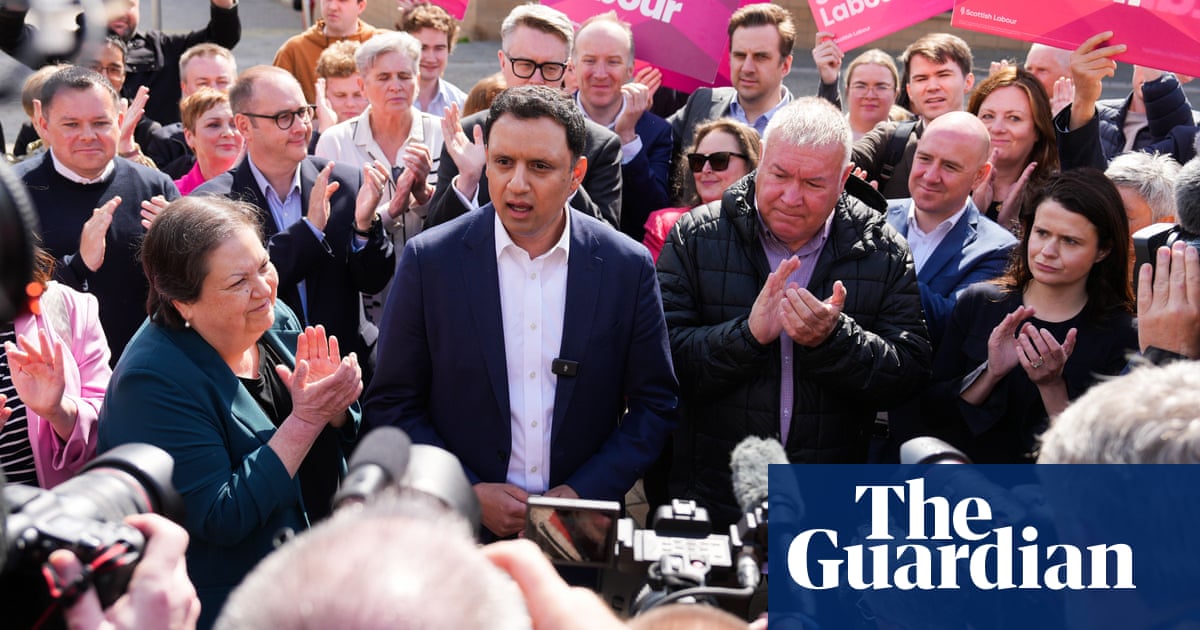NEW Scottish Labour’s surprise byelection win proves “the SNP’s balloon has burst”, a jubilant Anas Sarwar has said,after after popular local candidate Davy Russelldefied predictions to beat the incumbentNationalists and fight off Reform UK’s “racist” campaigning in the central Scotland seat of Hamilton, Larkhall and Stonehouse.
NEW END Sarwar told a victory rally in Hamilton town centre on Friday morning that they had proved everyone wrong following speculation thatReform UKmight push Scottish Labour into third place, as the rightwing populist party gained ground in Scotland for the first time and Scottish Labour’s national suppoprt slumped in the face of unpopular Westminster policies.
“The reality is we proved the pollsters, the pundits, the political commentators and the bookies all wrong, and they are not understanding what is happening on the ground,” Sarwar said. “On the ground, people believe the SNP are done. The balloon has burst, people think they are a busted flush and they want them out.”
The byelection result proved to people acrossScotlandthat only Scottish Labour could beat the SNP in 2026, he added, as he praised the results of “the most significant and best ground operation in any constituency in the history of the Scottish Labour party”.
Sarwar said: “Reform can make the noise. The Tories aren’t even at the races. It’s a straight choice between the SNP and ScottishLabour.”
While continuing to condemn Reform’s “dirty campaign” – which involved increasingly personal attacks on him by Nigel Farage that were condemned cross-party as racist – Sarwar also attacked “the spin, nonsense, and misinformation from the SNP”. Their attempts to present the contest as a two-horse race between SNP and Reform had risked pushing voters towards the rightwing populists, he said.
NEW But Swinney denied this, insisting his campaign messaging was informed by what voters were telling him. “People were telling us on doorsteps of their anger and frustration at the Labour party because of things like winter fuel payments,” he told reporters at his party headquarters Edinburgh.
NEW “But also on the same sessions on the doorsteps that people were planning to vote Reform. The confluence of those two things meant that I had to say our message for the SNP could stop Reform. I certainly don’t want the poisonous politics of Farage to be imported into the Scottish Parliament.”
NEW Swinney also claimed his party made progress in the byelection. “It’s not as much as I would like us to have made, but we’ve made progress against the backdrop of a really damaging [general] election last summer.”
Although Reform came in third place, the party gained 26% of the vote share – a significant success for a party that still has minimal, though expanding, infrastructure north of the border and no dedicated Scottish leader. This mirrored levels of support it has enjoyed in recent central belt council byelections.
Many of its votes appear to have come from a collapse in Conservative support, down from 18% in 2021 to 6% yesterday, but the SNP also lost almost 17% of its vote share while Labour was down 2%.
Sarwar suggested that three blocks of voters had moved to Reform – former Conservatives, those making a protest vote against both Westminster and Holyrood incumbents, and some who believed “the frankly ludicrous campaign that this was a straight choice between Reform and the SNP”.
At the rally, the Scottish Labour deputy leader, Dame Jackie Baillie, said the contest was a vindication of the party’s strategy, demonstrating that “talking to people and doing to work on the doorstep is absolutely vital to how we win”. Other Labour figures pointed out that the party had made a conscious decision to focus on the ground campaign, which is largely invisible to the national media but secured victory in the end.
That ground campaign also paid off in terms of countering the dissatisfaction with the decision-making of Keir Starmer and Rachel Reeves that some voters were making loudly clear on the doorstep. Labour politicians who were helping the canvas described local people as having “a lot to get off their chests” and the need for lengthy engagement on the thinking behind unpopular Westminster decisions, which appears to have won over many voters.
